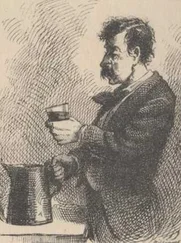Marcus Cicero - Treatises on Friendship and Old Age
Здесь есть возможность читать онлайн «Marcus Cicero - Treatises on Friendship and Old Age» — ознакомительный отрывок электронной книги совершенно бесплатно, а после прочтения отрывка купить полную версию. В некоторых случаях можно слушать аудио, скачать через торрент в формате fb2 и присутствует краткое содержание. Жанр: foreign_antique, Философия, foreign_edu, на английском языке. Описание произведения, (предисловие) а так же отзывы посетителей доступны на портале библиотеки ЛибКат.
- Название:Treatises on Friendship and Old Age
- Автор:
- Жанр:
- Год:неизвестен
- ISBN:нет данных
- Рейтинг книги:5 / 5. Голосов: 1
-
Избранное:Добавить в избранное
- Отзывы:
-
Ваша оценка:
- 100
- 1
- 2
- 3
- 4
- 5
Treatises on Friendship and Old Age: краткое содержание, описание и аннотация
Предлагаем к чтению аннотацию, описание, краткое содержание или предисловие (зависит от того, что написал сам автор книги «Treatises on Friendship and Old Age»). Если вы не нашли необходимую информацию о книге — напишите в комментариях, мы постараемся отыскать её.
Treatises on Friendship and Old Age — читать онлайн ознакомительный отрывок
Ниже представлен текст книги, разбитый по страницам. Система сохранения места последней прочитанной страницы, позволяет с удобством читать онлайн бесплатно книгу «Treatises on Friendship and Old Age», без необходимости каждый раз заново искать на чём Вы остановились. Поставьте закладку, и сможете в любой момент перейти на страницу, на которой закончили чтение.
Интервал:
Закладка:
Now this truth seems clear to me, that nature has so formed us that a certain tie unites us all, but that this tie becomes stronger from proximity. So it is that fellow-citizens are preferred in our affections to foreigners, relations to strangers; for in their case Nature herself has caused a kind of friendship to exist, though it is one which lacks some of the elements of permanence. Friendship excels relationship in this, that whereas you may eliminate affection from relationship, you cannot do so from friendship. Without it relationship still exists in name, friendship does not. You may best understand this friendship by considering that, whereas the merely natural ties uniting the human race are indefinite, this one is so concentrated, and confined to so narrow a sphere, that affection is ever shared by two persons only or at most by a few.
6. Now friendship may be thus defined: a complete accord on all subjects human and divine, joined with mutual goodwill and affection. And with the exception of wisdom, I am inclined to think nothing better than this has been given to man by the immortal gods. There are people who give the palm to riches or to good health, or to power and office, many even to sensual pleasures. This last is the ideal of brute beasts; and of the others we may say that they are frail and uncertain, and depend less on our own prudence than on the caprice of fortune. Then there are those who find the "chief good" in virtue. Well, that is a noble doctrine. But the very virtue they talk of is the parent and preserver of friendship, and without it friendship cannot possibly exist.
Let us, I repeat, use the word virtue in the ordinary acceptation and meaning of the term, and do not let us define it in high-flown language. Let us account as good the persons usually considered so, such as Paulus, Cato, Gallus, Scipio, and Philus. Such men as these are good enough for everyday life; and we need not trouble ourselves about those ideal characters which are nowhere to be met with.
Well, between men like these the advantages of friendship are almost more than I can say. To begin with, how can life be worth living, to use the words of Ennius, which lacks that repose which is to be found in the mutual good-will of a friend? What can be more delightful than to have some one to whom you can say everything with the same absolute confidence as to yourself? Is not prosperity robbed of half its value if you have no one to share your joy? On the other hand, misfortunes would be hard to bear if there were not some one to feel them even more acutely than yourself. In a word, other objects of ambition serve for particular ends—riches for use, power for securing homage, office for reputation, pleasure for enjoyment, health for' freedom from pain and the full use of the functions of the body. But friendship embraces innumerable advantages. Turn which way you please, you will find it at hand. It is everywhere; and yet never out of place, never unwelcome. Fire and water themselves, to use a common expression, are not of more universal use than friendship. I am not now speaking of the common or modified form of it, though even that is a source of pleasure and profit, but of that true and complete friendship which existed between the select few who are known to fame. Such friendship enhances prosperity, and relieves adversity of its burden by halving and sharing it.
7. And great and numerous as are the blessings of friendship, this certainly is the sovereign one, that it gives us bright hopes for the future and forbids weakness and despair. In the face of a true friend a man sees as it were a second self. So that where his friend is he is; if his friend be rich, he is not poor; though he be weak, his friend's strength is his; and in his friend's life he enjoys a second life after his own is finished. This last is perhaps the most difficult to conceive. But such is the effect of the respect, the loving remembrance, and the regret of friends which follow us to the grave. While they take the sting out of death, they add a glory to the life of the survivors. Nay, if you eliminate from nature the tie of affection, there will be an end of house and city, nor will so much as the cultivation of the soil be left. If you don't see the virtue of friendship and harmony, you may learn it by observing the effects of quarrels and feuds. Was any family ever so well established, any State so firmly settled, as to be beyond the reach of utter destruction from animosities and factions? This may teach you the immense advantage of friendship.
They say that a certain philosopher of Agrigentum, in a Greek poem, pronounced with the authority of an oracle the doctrine that whatever in nature and the universe was unchangeable was so in virtue of the binding force of friendship; whatever was changeable was so by the solvent power of discord. And indeed this is a truth which everybody understands and practically attests by experience. For if any marked instance of loyal friendship in confronting or sharing danger comes to light, every one applauds it to the echo. What cheers there were, for instance, all over the theatre at a passage in the new play of my friend and guest Pacuvius; where the king, not knowing which of the two was Orestes, Pylades declared himself to be Orestes, that he might die in his stead, while the real Orestes kept on asserting that it was he. The audience rose en masse and clapped their hands. And this was at an incident in fiction: what would they have done, must we suppose, if it had been in real life? You can easily see what a natural feeling it is, when men who would not have had the resolution to act thus themselves, shewed how right they thought it in another.
I don't think I have any more to say about friendship. If there is any more, and I have no doubt there is much, you must, if you care to do so, consult those who profess to discuss such matters.
Fannius . We would rather apply to you. Yet I have often consulted such persons, and have heard what they had to say with a certain satisfaction. But in your discourse one somehow feels that there is a different strain.
Scaevola . You would have said that still more, Fannius, if you had been present the other day in Scipio's pleasure-grounds when we had the discussion about the State. How splendidly he stood up for justice against Philus's elaborate speech.
Fannius . Ah! it was naturally easy for the justest of men to stand up for justice.
Scaevola . Well, then, what about friendship? Who could discourse on it more easily than the man whose chief glory is a friendship maintained with the most absolute fidelity, constancy, and integrity?
8. Laclius . Now you are really using force. It makes no difference what kind of force you use: force it is. For it is neither easy nor right to refuse a wish of my sons-in-law, particularly when the wish is a creditable one in itself.
Well, then, it has very often occurred to me when thinking about friendship, that the chief point to be considered was this: is it weakness and want of means that make friendship desired? I mean, is its object an interchange of good offices, so that each may give that in which he is strong, and receive that in which he is weak? Or is it not rather true that, although this is an advantage naturally belonging to friendship, yet its original cause is quite other, prior in time, more noble in character, and springing more directly from our nature itself? The Latin word for friendship— amicitia —is derived from that for love— amor ; and love is certainly the prime mover in contracting mutual affection. For as to material advantages, it often happens that those are obtained even by men who are courted by a mere show of friendship and treated with respect from interested motives. But friendship by its nature admits of no feigning, no pretence: as far as it goes it is both genuine and spontaneous. Therefore I gather that friendship springs from a natural impulse rather than a wish for help: from an inclination of the heart, combined with a certain instinctive feeling of love, rather than from a deliberate calculation of the material advantage it was likely to confer. The strength of this feeling you may notice in certain animals. They show such love to their offspring for a certain period, and are so beloved by them, that they clearly have a share in this natural, instinctive affection. But of course it is more evident in the case of man: first, in the natural affection between children and their parents, an affection which only shocking wickedness can sunder; and next, when the passion of love has attained to a like strength—on our finding, that is, some one person with whose character and nature we are in full sympathy, because we think that we perceive in him what I may call the beacon-light of virtue. For nothing inspires love, nothing conciliates affection, like virtue. Why, in a certain sense we may be said to feel affection even for men we have never seen, owing to their honesty and virtue. Who, for instance, fails to dwell on the memory of Gaius Fabricius and Manius Curius with some affection and warmth of feeling, though he has never seen them? Or who but loathes Tarquinius Superbus, Spurius Cassius, Spurius Maelius? We have fought for empire in Italy with two great generals, Pyrrhus and Hannibal. For the former, owing to his probity, we entertain no great feelings of enmity: the latter, owing to his cruelty, our country has detested and always will detest.
Читать дальшеИнтервал:
Закладка:
Похожие книги на «Treatises on Friendship and Old Age»
Представляем Вашему вниманию похожие книги на «Treatises on Friendship and Old Age» списком для выбора. Мы отобрали схожую по названию и смыслу литературу в надежде предоставить читателям больше вариантов отыскать новые, интересные, ещё непрочитанные произведения.
Обсуждение, отзывы о книге «Treatises on Friendship and Old Age» и просто собственные мнения читателей. Оставьте ваши комментарии, напишите, что Вы думаете о произведении, его смысле или главных героях. Укажите что конкретно понравилось, а что нет, и почему Вы так считаете.












